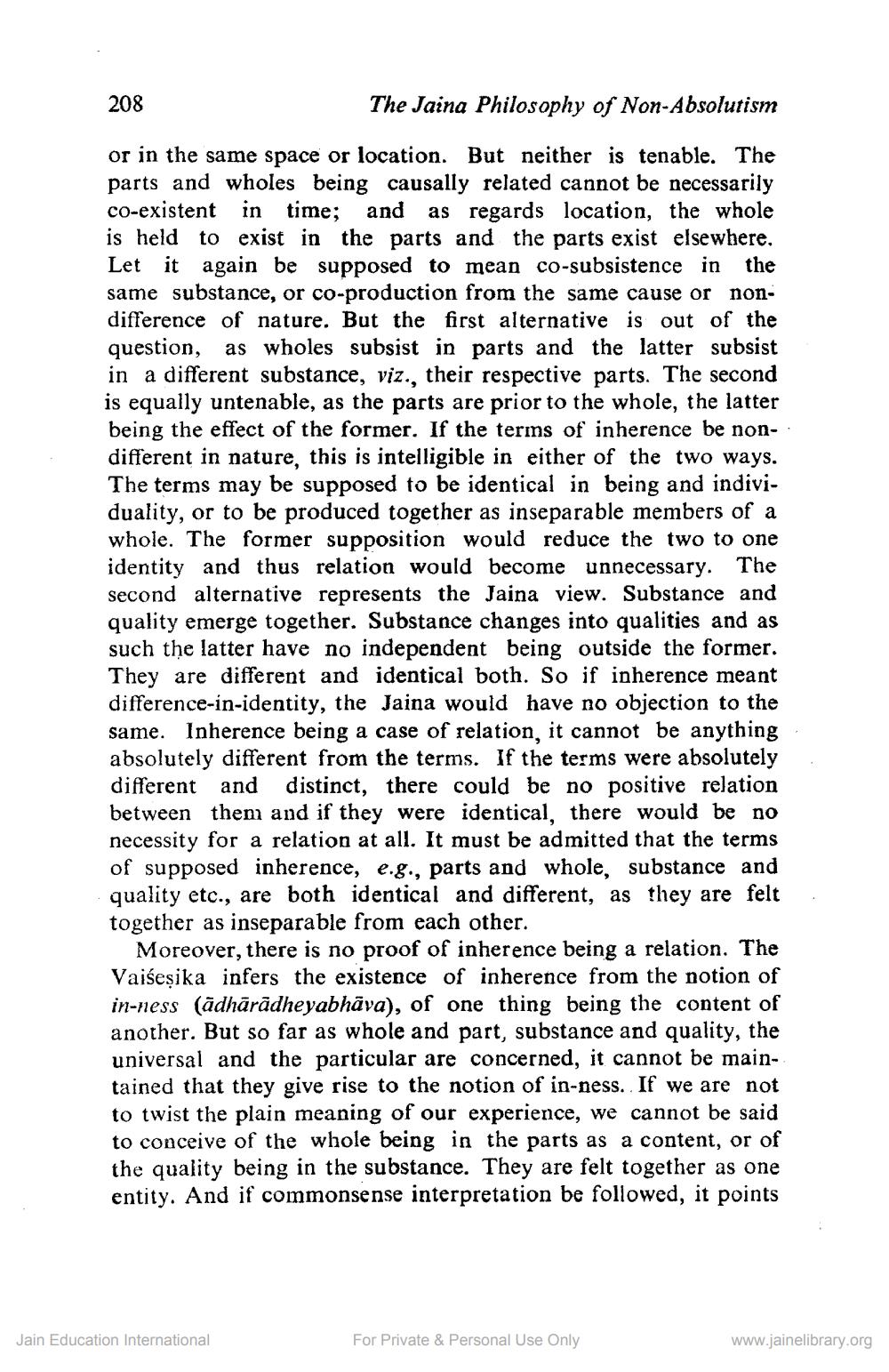________________
208
The Jaina Philosophy of Non-Absolutism
or in the same space or location. But neither is tenable. The parts and wholes being causally related cannot be necessarily co-existent in time; and as regards location, the whole is held to exist in the parts and the parts exist elsewhere. Let it again be supposed to mean co-subsistence in the same substance, or co-production from the same cause or nondifference of nature. But the first alternative is out of the question, as wholes subsist in parts and the latter subsist in a different substance, viz., their respective parts. The second is equally untenable, as the parts are prior to the whole, the latter being the effect of the former. If the terms of inherence be nondifferent in nature, this is intelligible in either of the two ways. The terms may be supposed to be identical in being and individuality, or to be produced together as inseparable members of a whole. The former supposition would reduce the two to one identity and thus relation would become unnecessary. The second alternative represents the Jaina view. Substance and quality emerge together. Substance changes into qualities and as such the latter have no independent being outside the former. They are different and identical both. So if inherence mea difference-in-identity, the Jaina would have no objection to the same. Inherence being a case of relation, it cannot be anything absolutely different from the terms. If the terms were absolutely different and distinct, there could be no positive relation between them and if they were identical, there would be no necessity for a relation at all. It must be admitted that the terms of supposed inherence, e.g., parts and whole, substance and quality etc., are both identical and different, as they are felt together as inseparable from each other.
Moreover, there is no proof of inherence being a relation. The Vaišeșika infers the existence of inherence from the notion of in-ness (ādhārādheyabhāva), of one thing being the content of another. But so far as whole and part, substance and quality, the universal and the particular are concerned, it cannot be maintained that they give rise to the notion of in-ness. If we are not to twist the plain meaning of our experience, we cannot be said to conceive of the whole being in the parts as a content, or of the quality being in the substance. They are felt together as one entity. And if commonsense interpretation be followed, it points
Jain Education International
For Private & Personal Use Only
www.jainelibrary.org




